Don't wanna be here? Send us removal request.
Text
Okay, as a prime example of “translating idioms is hard,” in the Epistle to the Romans (12:20), Saint Paul quotes the Book of Proverbs (25:21-22). This proverb says:
If your enemies are hungry, give them bread to eat; and if they are thirsty, give them water to drink; for you will heap coals of fire on their heads, and the LORD will reward you.
If it sounds harsh or confusing, the Oxford Annotated Bible actually offers glosses of certain proverbs. The meaning of the first part of verse 22 is meant to be “undeserved kindness awakens remorse.” This is also the understanding of the most influential Church Fathers.
19 notes
·
View notes
Text

The New Jerusalem, from a manuscript produced for the Armenian Orthodox Church in 1645.
[W]hat you do in the Lord is not in vain. You are not oiling the wheels of a machine that's about to roll over a cliff. You are not restoring a great painting that's shortly going to be thrown on the fire. You are not planting roles in a garden that's about to be dug up for a building site. You are —strange though it may seem, almost as hard to believe as the resurrection itself— accomplishing something that will become in due course part of God's new world. Every act of love, gratitude, and kindness; every work of art or music inspired by the love of God and delight in the beauty of his creation; every minute spent teaching a severely handicapped child to read or to walk; every act of care and nurture, of comfort and support, for one's fellow human beings and for that matter one's fellow nonhuman creatures; and of course every prayer, all Spirit-led teaching, every deed that spreads the gospel, builds up the church, embraces and embodies holiness rather than corruption, and makes the name of Jesus honored in the world — all of this will find its way, through the resurrecting power of God, into the new creation that God will one day make. That is the logic of the mission of God. God's recreation of his wonderful world, which began with the resurrection of Jesus and continues mysteriously as God's people live in the risen Christ and in the power of his Spirit, means that what we do in Christ and by the Spirit in the present is not wasted. It will last all the way into God's new world. In fact, it will be enhanced there.
- N.T. Wright (Surprised by Hope: Rethinking Heaven, the Resurrection, and the Mission of the Church, pages 208-209). Italics original, paragraph breaks added to avoid a wall of text.
#Christianity#redemption#salvation#World to Come#truth#goodness#beauty#service#charity#Co-Redemptrix#grace#Gospel#Ecclesia#Light of the World#love#agape#kindness#Resurrection#Jesus Christ#Holy Spirit#Holy Name of Jesus#N.T. Wright#God the Father#Good Shepherd
2 notes
·
View notes
Text
Conscience is that inner ground where we and God have to learn to live with each other as man and wife.
Martin Luther (Lecture on Psalm 77), trans. Erik Erikson. Original Latin: locus noster, in quo nos cum deo, sponsns cum sponsa, habitare debet (id est conscientia)
4 notes
·
View notes
Text
Anyone know where I can find online access to Sebastian Castellio’s On Heretics in English? Wikisource has a French edition, but I don’t speak French
1 note
·
View note
Text

An angel in the flesh and the cornerstone of the prophets, the second forerunner of the coming of Christ, glorious Elijah sent grace from on high to Elisha, to dispel diseases and to cleanse lepers. Therefore, he pours forth healings on those who honor him.
32 notes
·
View notes
Text
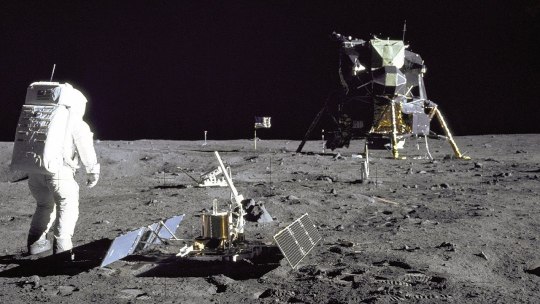
Watching those images of men on the moon we felt awed, a community united in feeling small in the face of the enormity of what was happening. The same thing happens when we think about space: we are but a tiny droplet in the infinity of the universe. If one tomorrow we discover that there are other forms of life out there, it will only be because God has willed it. The existence and intelligibility of the universe are not the fruit of chaos or chance but of divine wisdom, present, as we read in chapter 8, verse 22, of the book of Proverbs: "at the beginning of his work, the first of his acts of old." We must always persevere in our search for truth, accept new scientific discoveries with humility, and not repeat the mistakes of the past: by treading a path toward the boundaries of human knowledge it is possible to achieve a true experience of the Lord, who is in a position to fill our hearts.
Pope Francis (Life: My Story Through History, pages 70-71), trans. Aubrey Botsford.
26 notes
·
View notes
Photo
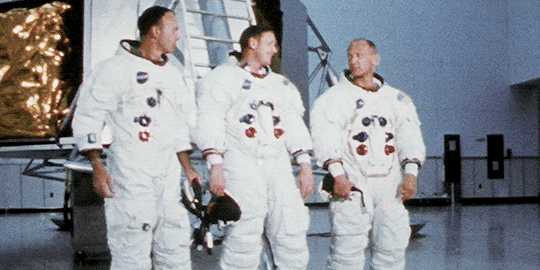
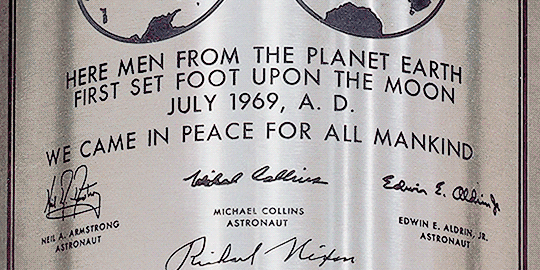

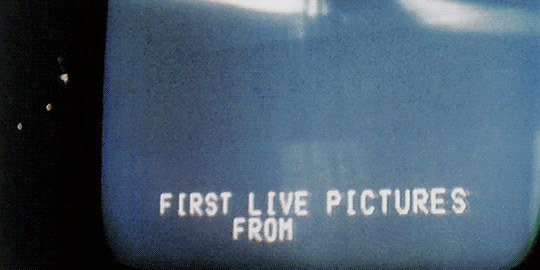

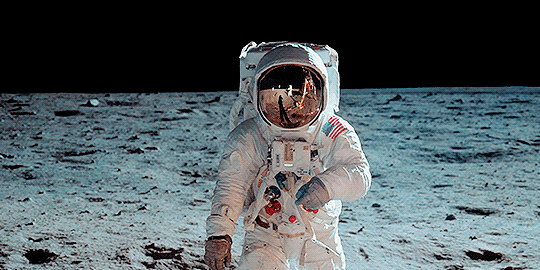

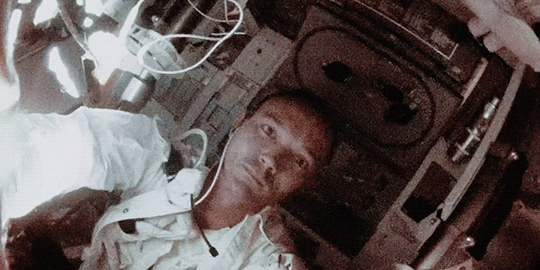
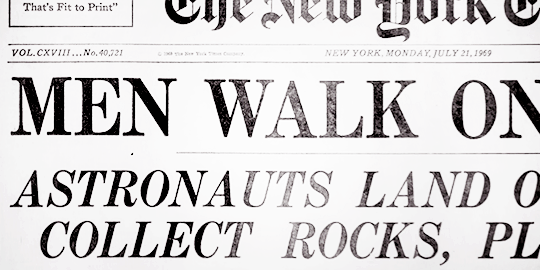
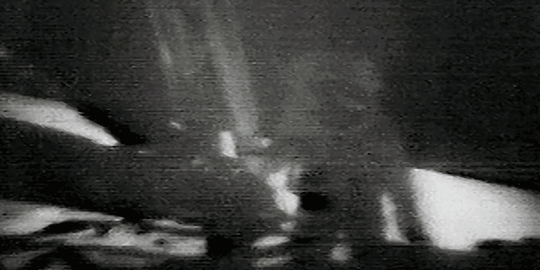
Anniversary of APOLLO 11 MOON LANDING
On July 20, 1969, 109 hours and 42 minutes after launch, Neil Armstrong and Edwin ‘Buzz’ Aldrin entered the lunar lander ‘Eagle’, made a final check, and the Eagle undocked from the lunar orbiter ‘Columbia’, where the third member of the crew Michael Collins, stayed in orbit around the moon. Partially manually piloted by Armstrong, the Eagle landed 0 degrees, 41 minutes, 15 seconds north moon latitude and 23 degrees, 26 minutes east moon longitude. Armstrong stepped out, and Aldrin followed 20 minutes later: human beings stepped on the moon for the first time. The two men spent 21 hours and 26 minutes on its surface. One of the astounding aspects of the mission was the seeming simplicity of the technology used to get man to the moon. According to Oliver Gassmann, professor of Technology Management, the mobile phone in your pocket has one million times more memory than the Apollo 11’s computer. Same about the procesor: the latest phones typically have more than 100,000 times the processing power of the computer that landed man on the moon 50 years ago.
“It suddenly struck me that that tiny pea, pretty and blue, was the Earth. I put up my thumb and shut one eye, and my thumb blotted out the planet Earth. I didn’t feel like a giant. I felt very, very small.” –Neil Armstrong
(gifs from the documentary Chasing The Moon, 2019)
17K notes
·
View notes
Text
Holy moly, there's an example of a huskie surviving a polar bear attack by engaging in playful signalling, causing the bear to change his mind and just goof around and play-fight with what would have been easy prey instead.
49 notes
·
View notes
Text
What does it mean, theologically, that play-behavior seems so deeply ingrained in mammals, at least?
Holy moly, there's an example of a huskie surviving a polar bear attack by engaging in playful signalling, causing the bear to change his mind and just goof around and play-fight with what would have been easy prey instead.
49 notes
·
View notes
Text
Holy moly, there's an example of a huskie surviving a polar bear attack by engaging in playful signalling, causing the bear to change his mind and just goof around and play-fight with what would have been easy prey instead.
49 notes
·
View notes
Text
Pope Paul VI's Address to the Apollo 11 Crew
Mister Armstrong; Colonel Aldrin; Lieutenant-Colonel Collins. It is with the greatest joy in Our heart that We welcome you here today — you who have broken through the barrier of space to land on another world of God's creation. Man has a natural urge to explore the unknown — to know the unknown; yet man has also a fear of the unknown. Your bravery has transcended this fear, and through your intrepid adventure, man has taken another step towards knowing more of the universe; [this is,] in your words, Mr. Armstrong: "one giant leap for mankind." We admire your courage, and We admire the spirit with which you fulfilled this mission; a spirit of service to humanity, and a spirit of peace. Our prayers, with the prayers of the Church throughout the world, were with you every moment of your voyage, and We, on behalf of the whole Church, offer Our sincerest congratulations to you; and also, through you, to the scientists, the technicians, the workers, and all who contributed knowledge, skill, and labor to this supreme enterprise. We also congratulate and thank the President and people of your beloved nation for making possible this exploration, with typical generosity of spirit, for the good of man and the world. We praise the genius, dedication, and perseverance which has been shown throughout this magnificent undertaking. The standard of collaboration and cooperation, and the perfection which was reached in the organization and in the sciences and talents employed, are the admiration of the world, and pay tribute to the capacity of modern man to reach beyond himself, to reach beyond human nature, to attain the perfection of achievement made possible by his God-given intelligence. We praise God, Creator of the world, and because the heavens are telling the glory of God, and the firmament proclaims His handiwork [Psalm 18:2, or 19:1], We pray to Him that we may see more of the good creation, and that from this we may see more dearly His power, His infinity, and His perfection; that by this knowledge men may more and more be drawn together, as His children, in fraternal love, in peace, and in prayer. We thank and give glory to God for the successful achievement of your mission, for the things you have discovered, and for your safe return to earth; and We invoke upon you, your wives, and your children the richest blessings and favors from the Lord of the heavens.
Given on the occasion of the astronauts' visit to the Vatican, on October 16th, 1969.
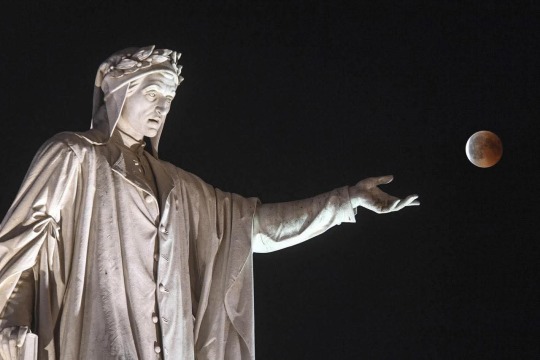
statue of Dante Alighieri with the July 2018 blood moon (x)
#Apollo 11#moon#United States#Christianity#Catholicism#Pope Paul VI#Richard Nixon#courage#Book of Psalms#statue#Dante Alighieri#eclipse#space exploration
13 notes
·
View notes
Text
Jesus chose to be politically powerless in order to faithfully love his neighbors—even to the point of death.
10 notes
·
View notes
Text
"Know your own happiness. You want nothing but patience—or give it a more fascinating name, call it hope."
-- J. Austen, Sense and Sensibility.
"For the medievals the virtue of patience, as I pointed out earlier, is intimately related to the virtue of hope; to be patient is to be prepared to wait until the promise of life is fulfilled."
-- A. MacIntyre, After Virtue.
64 notes
·
View notes
Note
The following statement is true:
"The Sententia Incarnationis Absolutae is a theological concept that refers to the idea that the Incarnation of Jesus Christ was absolutely necessary and would have occurred regardless of sin or human circumstances. It's a theory that suggests God's decision to become human in Jesus Christ was not contingent on human sin, but rather a fundamental aspect of God's nature and plan.
In essence, the Sententia Incarnationis Absolutae posits that the Incarnation of Jesus Christ is an absolute and unconditional act of God's love, rather than a response to human sin. This concept has been debated and explored by theologians and scholars within the Catholic tradition." ? 1/2
'Cause I was aware that God's will was to incarnate in perfect humanity, even if Adam had not fallen, through a woman singularly blessed by the Holy Spirit. This would have been in accordance with God's original plan, wherein the Word of God would become both human and divine simultaneously. This plan would have unfolded even if Lucifer had not rebelled, but instead had fulfilled his role as God's messenger and regent, anticipating the incarnation of the Word, who had already manifested in human form in Eden, and to the other angels prior to the earth's creation. 2/2
This is an active debate among Catholic scholastics, with prominent members on both sides. I agree with you; Thomas Aquinas does not. Thomas Aquinas's stance is a careful one, saying that we should "seemingly" take the position that it is "more in accordance" with Divine Revelation to say that the Incarnation was brought about as a remedy for sin. Thomas Aquinas also admits there are a plurality of opinions on this subject. There is a modern book called The Universal Primacy of Christ, by Juniper B. Carol, O.F.M, which is an English recension of a work by Xavier Pancheri, O.F.M., that makes the argument for the other side, the one you and I hold. It is fitting that they are both Franciscans, because the opposition to the Thomistic opinion has largely been from the Franciscan Order, who view the Person of Christ as having the absolute primacy for the cause of creation; that God has preordained the cosmos to find its terminus and center in the Incarnate Logos, to whom the Father has gifted Creation and who in turn acts as gift to that Creation. It is in Christ, and Christ alone, that God has disclosed Himself in His fullness, and that disclosure was always meant to happen.
#Christianity#Catholicism#Jesus Christ#Incarnation#Logos#Saint Thomas Aquinas#Revelation#Original Sin#salvation#redemption#Cosmic Man#asks
10 notes
·
View notes
Note
Hey, I have a question for you about the accuracy of a statement I heard; it was explained to me that, while the Roman Catholic Church uses a minimalist approach to prescribing fasts (“You should be doing more than this privately, but this is the minimum that the Church asks you to do”), the Orthodox Churches take a maximalist approach to prescribing fasts (“This is the ideal that the Church wants everyone to do, but it’s up to individual believers to determine the level of participation that they can engage in”), and that’s why Orthodox asceticism seems to much more daunting and rigorous.
Would you say that is an accurate assessment of the Orthodox practice, and do you know of any sources that affirm or deny this assessment? Thank you!
Anecdotally, that sounds about right on the Orthodox end of things (I assume you're right on the RC end of things); I also remember Fr. Stephen DeYoung saying (though I don't remember where that) "some [Orthodox Christians] fast very strictly and some don't at all."
There's also the inverse Orthodox misunderstanding; for example, when someone mentioned the tradition of eating fish on Friday, I thought (thinking of this from the Orthodox maximalist approach, which would prohibit red or white meat, eggs, dairy, fish, alcohol or oil on Wednesdays and Fridays) "Catholics are wimps!"
19 notes
·
View notes
Text
Okay, it's been a few weeks, and I was thinking about this movie a lot because I almost chose this film instead of Juno for my class assignment, but here's my problem: The thing about the zombies in this film is that, while you might forget it when they're mindlessly trying to rip the main characters apart, these are suffering human beings. These are living, breathing individuals who are cognitively degraded because of a rabies-like virus. They are actively suffering more than any other character in the film. And you have a character who still sees their life as having value, who is reverencing their humanity not only by performing funerary rites for them but also by deliberately not killing them. When he or other non-infected human beings are in mortal danger, he uses non-lethal means to incapacitate rather than kill the zombies. ... But it's okay to put a cancer patient out of her misery. These are people who are barely living above animal-level intelligence, most of whom are living at below animal-level quality of life.... but it is the cancer patient whose suffering is so extreme that we can put that reverence for human life aside in order to snuff her out. And, look, even putting the ethics of euthanasia aside for a second, if you're going to give a character such a radical position concerning the zombies, why isn't this position being lived out in situations involving other forms of terminal, incurable illness? And yes, I know the answer is "People are not 100% ideologically pure or logically consistent," but it still rubs me the wrong way.
Heavy 28 Years Later spoilers, but
Given how much Doctor Kelson's worldview acts as a foil to Jamie's ("all human life, infected or otherwise, is worth reverential remembering," vs. "if it doesn't have a mind, it doesn't have a soul, it's basically not human"*), I was disappointed that the film treated euthanizing a cancer patient without any sense of controversy at all. *Which, to be fair, is probably a necessary coping mechanism for the level of justified violence you need to be willing to commit just to survive in this world
7 notes
·
View notes
Text
Joke is on these nerds, the paper I wrote about a movie from almost two decades ago, released when I was a kid, got me an A+
Bro, all these people (about half the class) wrote their paper on Inside Out.
So much for the "diverse list of films" that the professor was hoping to get out of this.
32 notes
·
View notes